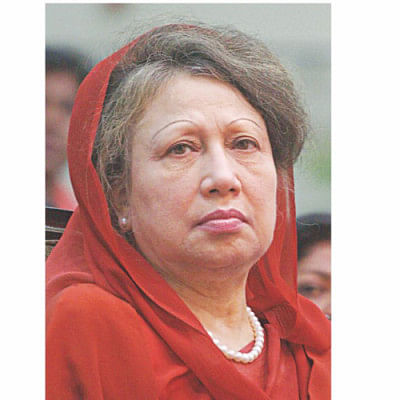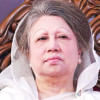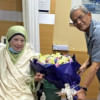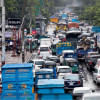Khaleda will be taken to CMH if BNP agrees

Home Minister Asaduzzaman Khan yesterday said BNP Chairperson Khaleda Zia would be taken to Combined Military Hospital (CMH) for necessary health checkups if the party wanted.
She will be taken to the CMH for checkups if the BNP refuses her treatment at Bangabandhu Sheikh Mujib Medical University (BSMMU) Hospital, he told journalists at his secretariat office, reports BSS.
Meanwhile, BNP chief's younger brother Shamim Iskander wrote a letter to the home ministry yesterday seeking permission for bearing all medical expenses if she was admitted to United Hospital.
The BNP also echoed the same at a press conference, urging the government to immediately admit Khaleda to the hospital.
A three-member BNP representative, led by Shamim, submitted the letter after meeting the home minister at his office.
Asaduzzaman said they would make a proposal to take Khaleda to the CMH. There would no scope for the BNP to refuse the proposal as the hospital is good, he said.
“I will request personal and trusted physicians of Khaleda Zia to be present during her checkups,” he said, adding that he could not understand why Khaleda did not want to go to the BSMMU as it is a well-equipped and modern hospital.
The minister was speaking to reporters after getting the letter.
“The government has made the highest effort for Khaleda Zia's checkups as per the jail code and she will be treated as per the advice of civil surgeon and physicians of prison,” he added.
UNB adds: Shamim in the letter mentions that his sister has long been suffering from various diseases and her condition is deteriorating seriously as she is not getting proper treatment in jail.
Referring to Khaleda's four doctors' opinion that she “suffered a mild stroke”, Shamim said she was now at serious health risks.
“It's now crucial to admit her to the specialised United Hospital for necessary medical tests and treatment. I'm also giving the assurance that our family will bear all the expenses of the treatment,” the letter reads.
On Saturday, four personal physicians of the BNP chief expressed fear that she might have suffered a mild stroke at the Old Central Jail.
Later, the jail authorities took an initiative to conduct medical tests requested by her personal physicians and said all those tests would be conducted at the BSMMU.
But Khaleda refused to go to the BSMMU Hospital for the tests.
“Khaleda Zia did not agree to go to the BSMMU today [yesterday],” said Jahangir Kabir, senior jail superintendent of Dhaka Central Jail.
On Monday, Inspector General (Prisons) Brig Gen Syed Iftekhar Uddin said if the BNP chief agreed, she would be taken to the BSMMU Hospital on Tuesday.
He also said when she was first taken to the BSMMU Hospital, she had some observations. The jail authorities then requested the hospital to take steps to address those issues accordingly.
Dismissing the BNP's demand to take her to the United Hospital, Iftekhar said as per the jail code, they could only take her to a public hospital. “BSMMU is currently the best state-run hospital in the city.”
Asked by a reporter whether the BNP chief had fainted, the IG said it was not correct as she had “lost balance, but she is much better now.”
“We would not say that she is healthy, given her advanced age and suffering from various diseases, including diabetes. But our observation is that she is fine,” he added.
In another development yesterday, at a press conference at BNP's Nayapaltan central office, party standing committee member Khandaker Mosharraf Hossain yesterday urged the government to immediately admit Khaleda to the United Hospital. “We want our leader's proper treatment. If necessary, we'll pay all the expenses of her treatment.”
He also mentioned that then Awami League president and current Prime Minister Sheikh Hasina underwent treatment at Square Hospital when she was in jail after the 1/11 political changeover in 2007.
On February 8, Khaleda was sent to jail after a special court sentenced her to five years' rigorous imprisonment in the Zia Orphanage Trust graft case.

 For all latest news, follow The Daily Star's Google News channel.
For all latest news, follow The Daily Star's Google News channel. 








Comments